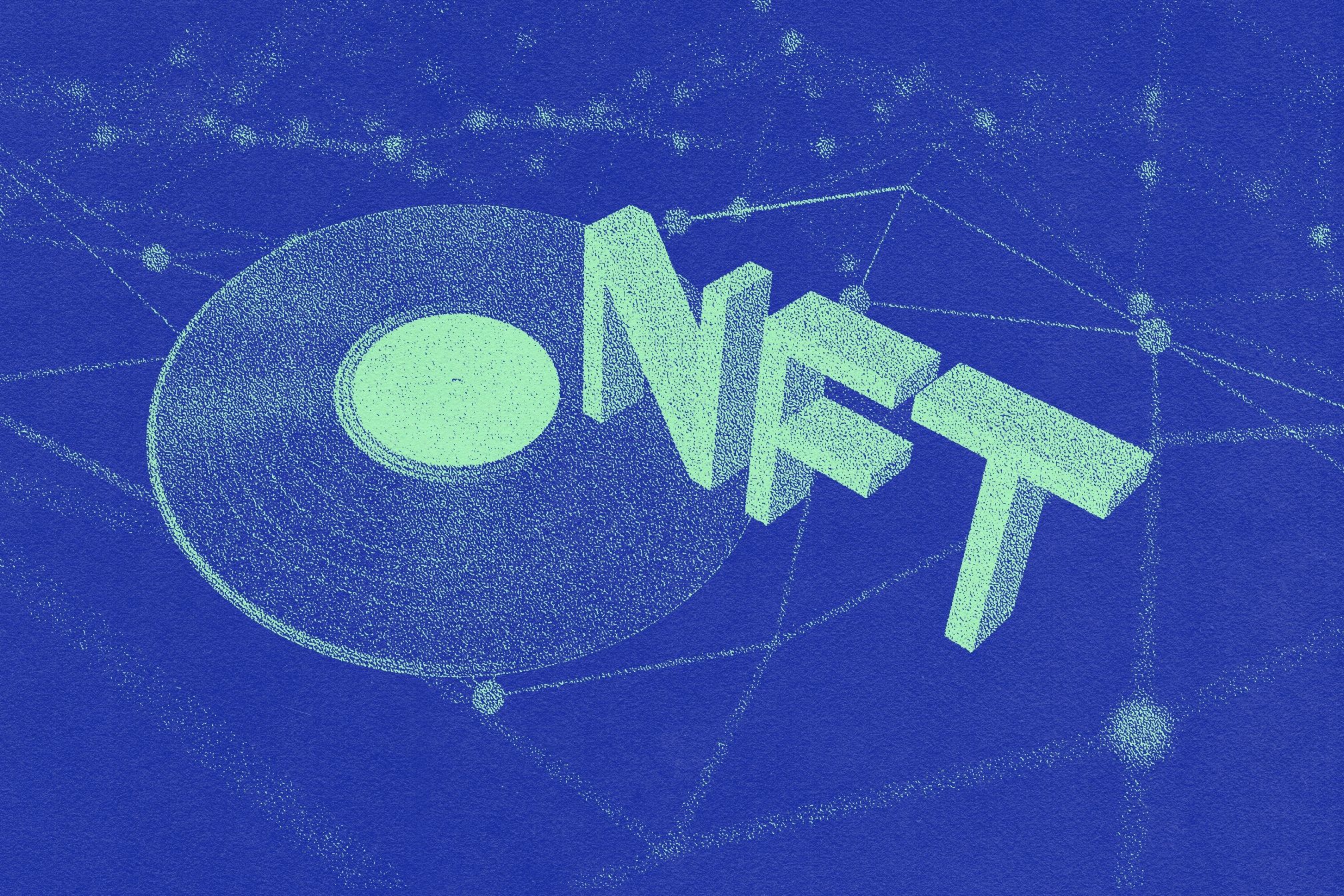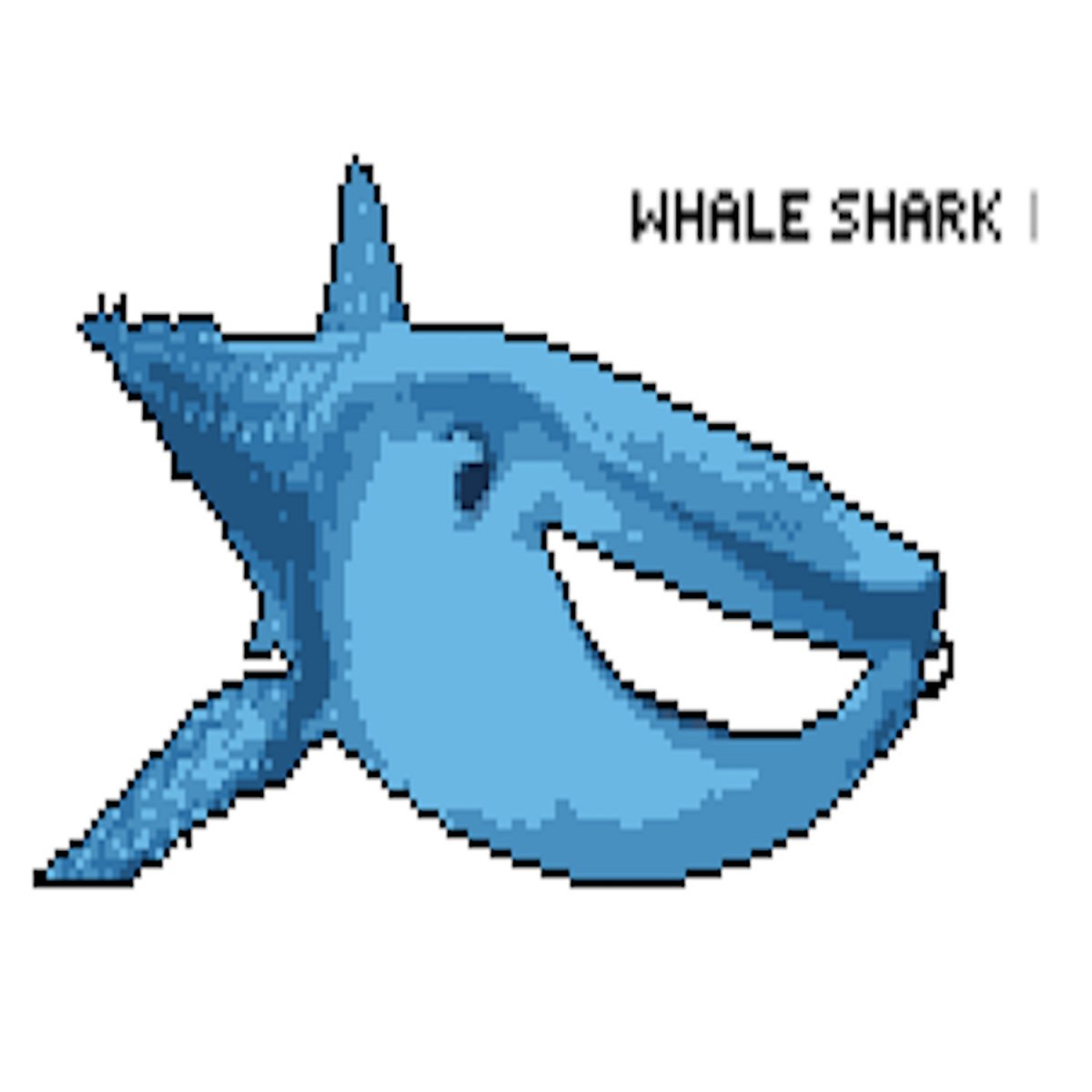 Features
Features
What is an NFT, and how could it help the music industry? A guide
Clarian - the first music artist to release a new album as an NFT - pens his thoughts on how the format could be game-changing for musicians
You may have noticed a lot of fuss in the music press and online over the last couple of weeks regarding Kings of Leon releasing an entire album as an NFT, or non-fungible token, via the Ethereum Blockchain.
What was less reported however, was that respected Canadian producer, DJ and musician Clarian beat the rockers to the punch and put up his new album ‘Whale Shark’ for auction as a rare one-off NFT one day earlier – officially becoming the first music artist to release a new album on this format.

Prior to that, other musicians have got stuck into the marketplace in varying forms. Jacques Greene auctioned the publishing rights of a single track, ‘Promise’, as an NFT, which sold for 7ETH (currently equivalent to £9,282.50). Disclosure created a song from scratch live on Twitch then immediately minted it to be sold as an NFT. Grimes sold a series of digital artworks, including images and short videos set to music, for close to $6 million. Most strikingly, 3LAU marked the three-year anniversary of his ‘Ultraviolet’ album with the auction of 33 NFTs of the LP, offering rewards such as a platinum-plated vinyl version of the album and access to unreleased music, fetching more than $11.6 million form the sales. The title of Clarian’s album is inspired by 3LAU and WaleShark, the pseudonymous name of a collector thought to be one of the largest holders of NFTs in the world.
All of this reporting also had many people asking WTF is an NFT? And why does this new technological development matter to the electronic music industry?
NFTs could be revolutionary for musicians, giving them a lot more control over their output and its pricing, and offering a direct revenue stream between themselves and fans that’s not reliant on third parties such as streaming platforms and concert promoters. It’s probably no coincidence that they’re taking off in a pandemic, following a lot of artists becoming reliant on touring as a primary income in the wake of declining record sales. There is also some wariness of NFTs, including criticism of their costly environmental toll, which Ethereum has started working on a solution to. Advocates note that as more institutional investors such as Tesla, PayPal, Micheal Saylor, and Marc Cuban have jumped on board and crypto emerges out of the shadows and into the mainstream, studies have shown the crypto space has been steeply lowering energy consumption despite record breaking hash rates and is looking towards alternative eco friendly and carbon neutral energy solutions (such as hydroelectric and solar) to maintain and boost profitability in the next five years. These also include better mining practices and migrations to Canada and Switzerland.
There are other concerns as well such that NFTs may be a bubble with only a few high profile winners profiting, and the argument that removing third parties such as gigs and record shops from artist and fan relationships will have a detrimental impact on the communities these places foster and the musical evolution they can often spark.
In the midst of the auction of ‘Whale Shark’, Clarian – who aside from being a successful artist in his own right has also worked extensively with the likes of Tiga, Felix Da Housecat, Visionquest as engineer and producer for both the underground scene and GRAMMY-nominated artists alike – is optimistic about the possibilities NFTs will bring for musicians. He’s penned a guide to NFTs, the blockchain and his thoughts on the game-changing potential of this new technology. Read it below.

WHAT ARE NFTs?
NFT stands for Non-Fungible Token. They are unique and collectible digital items you can create in which no two items are ever identical. "Fungible" essentially just means money, or even moreso, something that is freely exchangeable or replaceable. To understand this even better let's look at Non-Fungible. Something that is unique, and irreplaceable – like a painting or a precious work of art.
You can think of them like super limited edition vinyl – except they are indestructible. An NFT has only one special copy that exists. They can then have unique features built in, that you can easily customise yourself and sell at your own price. Your art, your world, your rules, your choice of value.
Such built-in features can include things like musical content, special artwork, rare pictures or digital data files, publishing contracts, advertising syncing rights and more.
NFTs are indestructible because the data is stored on the Ethereum Blockchain via Smart Contracts. Ethereum is a popular decentralized Blockchain platform. Smart Contracts let you exchange money or anything of value in a transparent and efficient way without the overheads and risks of working with an intermediary. Therefore each token cannot be destroyed, removed or replicated.
In terms of how NFTs are currently set up, the Smart Contracts act as self-executing contracts, or digital contracts that are basically made up of computer code – storing data and information on a decentralized ledger.
And they’re verifiable, meaning you can trace the historical ownership data such as digital artwork back to the original creator. And this process – to paraphrase Wu-Tg – cannot be fucked with. As a side note, Wu-Tang Clan semi pioneered this concept – albeit in analog form – with their 2015 album ‘Once Upon A Time In Shaolin’. Only one copy of the album was created and it was auctioned off to a single individual and – at the time – was the most expensive piece of music ever sold.
Since these NFTs exist on the Ethereum software program, that means that they are decentralised. This means that your music and art is not controlled by any authority, be that tech CEOs or shady governments.
This means you don’t have to share any profits with labels or streaming services, that often do not pay a fair share to artists. You don’t have to be valued by automated bots. You don’t have to be pushed around by any digital authority – all artists have equal opportunities to present, share and value their work.
WHAT ARE NFTs TO THE MUSIC INDUSTRY?
In simple terms: you can take your music and release it as an NFT in addition to the established outlets like Spotify, Bandcamp or wherever. This is another beauty of NFTs, they can manifest in many forms and don't have to be exclusively, completely owned by one individual.
So let’s say you’re an up-and-coming artist and you’re about to release your brand new album to the world. You can create one special NFT which represents the album in its entirety and therefore becomes a collectible item. Now that album can also contain very special content that only the one true owner gets. For example, they can get a cut of your sale from the album in perpetuity, or they can get a secret song, or special backstage access to your shows… You can decide which features to include and it is easy to set this up (more below).
HOW DOES THE ARTIST BENEFIT FROM THIS?
You first get money by setting up an album auction on platforms like Foundation or OpenSea, so your followers can bid on your collectible. Imagine if that track becomes a hit and then that one lucky fan who bought the collectible and supported you gets to share your success and all the benefits that come with that privilege.
And you can also get money from resale by baking into the contract a percentage every time your collectible gets resold. So let’s say your NFT – which represents your album becomes a big hit and is sold for millions of dollars down the line – the artist can keep getting paid each time these transactions happen.
HOW DOES THE COLLECTOR BENEFIT?
They get to support their favourite artists in a bigger, more personal and direct way than with other services such as Patreon, by removing the middle person. They also potentially get to be an investor in the art. So if the artist blows up, then their collection blows up. It becomes an exciting investment opportunity as well as a show of support.
HOW TO SET IT UP
It's pretty easy now to get your music minted and on the blockchain. In fact, you can actually tokenise and turn your music into a collectible NFT in a matter of minutes, once you have some ether. Ether is the currency used for the Ethereum platform.
FIVE STEPS TO SET UP YOUR NFT ALBUM, EP OR TRACK
1. The first thing you need to do is get a free and secure crypto wallet. This digital wallet is where you can store your ether, so when you get paid for your work you can keep it in your wallet or exchange it back to hard currency (such as USD, Euro or Pounds) whenever you need the money.
2. Once you have your wallet set up you can make an account at any open exchange that offers their service to your region for free, such as Binance, Gemini or Kraken, and buy some ether there.
3. Once you’re all set up and you’ve bought some ether then just transfer it back to your wallet and that’s it. Now you’re ready to get your music released through the chain!
4. From here, you can go to any of the more popular platforms where tons of NFTs of all kinds are being sold like Opensea or Foundation, which makes it easy for you to auction your art and set the terms and conditions, price, cool content, and all of that good stuff.
5. Follow the instructions on these platforms for setting things up and mint your very first NFT.
WHY IS THIS IMPORTANT?
Decentralised NFTs are the better and brighter digital future that the music industry needs. Although streaming services and artist supporting services have done wonders for sharing the artists work globally and providing ways for people all over the world to support their favourite artists – these services often fail in providing an acceptable return of value for the art itself.
We must continue to perpetuate and promote quality work to create a better world for our future ravers, shower singers, subway travellers, and listeners in all around the world. NFTs help provide the solution to this ongoing problem. They can realign the bridge of returning value towards quality of work over the illusion of what a person is about through social media or streaming algorithms.
You can check (and bid for) Clarian's NFT album 'Whale Shark' here: Enter the Whale Shark NFT Auction.
Sale ends on March 20, 2021 at 12:00am EST. The auction countdown event is happening in the Electronic Music Community (EMC^2) Group on Club House: "Electronic Music Community (EMC^2) is the world through the lens of Electronic Music. We amplify artists, founders, fans, and impactors through the panels and talks with key contributors to the Electronic Music Industry."
Read this next: Get the best of Mixmag direct to your Facebook DMs



